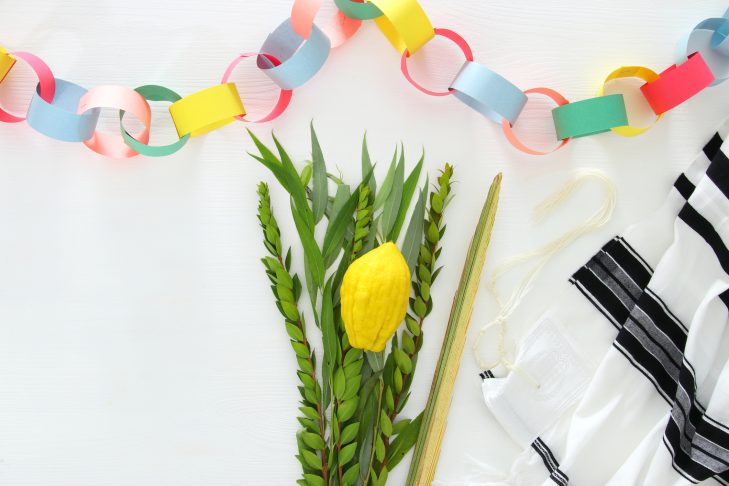“And the seasons they go round and round/And the painted ponies go up and down/We’re captive on the carousel of time/We can’t return, we can only look behind/From where we came/And go round and round and round/In the circle game/And go round and round and round/In the circle game.”
Remember those poignant words by singer-songwriter Joni Mitchell? They capture a lifetime of Sukkot experiences for me.
This past Friday night, I recited the blessing “to sit in the sukkah,” followed by an evening potluck meal at the Kehillath Israel sukkah, my Brookline congregational home.
I felt happy and relieved to do so. Why relieved? Because the eight-day holiday was almost over and this was my only opportunity to fulfill the mitzvah to sit and eat in the sukkah.
I began to contemplate my relationship to Sukkot over the years. As a child, it was not common for non-Orthodox Jews to construct their own sukkah. Our Orthodox neighbors did so, and probably invited us over, though I don’t have a strong memory of that. However, I vividly recall the Kehillath Israel sukkah of my Hebrew school years. Following religious services, the children would enter the beautifully decorated (by the Sisterhood, of course) sukkah with a wonderful fragrance of pine and fruits. Strung cranberries hanging and seasonal gourds surrounded us. Our beleaguered Hebrew school principal, Mr. Abraham A. Spack, of blessed memory, would admonish us to each take no more than one piece of fruit and one piece of cake at the kiddush in the sukkah. However, we relished the thrill of loading up on multiple pieces of cake and indeed stuffed our jackets and tallis bags with goodies. Hebrew school culture required mischief-making every step of the way, and Sukkot was no exception.
For many years, Sukkot receded from my consciousness and religious practice. When I married and had children, however, I prevailed upon my husband to purchase a pre-fab sukkah, which we joyously used and entertained in throughout our children’s childhood years. We invited their classmates, Jewish and non-Jewish, to visit and enjoy our very cool sukkah. Who needed Christmas when we had all those days of Sukkot fun?
Indeed, my elder daughter became a bat mitzvah during Chol Hamoed Sukkot, and learned to chant the haunting melody of the book of Ecclesiastes that is traditionally chanted that Shabbat. We sang “To every thing there is a season” to mark that special day.
So our kids grew up, and we ceased constructing our sukkah. Of course Sukkot should not be just for children, but our motivation dwindled. Ironically, this development sent me full circle back to the sukkah at KI. Gone is the thrill of seizing extra cakes, but new traditions have emerged, and this past Friday night I was able to invite newly arrived Israeli graduate students to sit with me in our communal KI sukkah. Several of them are Orthodox, so coming to our Conservative congregation is a new experience. I felt proud to have them meet our rabbis and other community members and partake of the kibbutz-style meal of vegetarian salads and stews that characterize this homey experience cleverly known as “Stewkot.” It was a cool early fall evening and a warm experience. We were bound together by an ancient and powerful ritual—Israeli and American Jews sharing our mutual tradition.
After an intense two days of viewing historic, disturbing and riveting U.S. Senate confirmation hearings, what a gift it has been to sit in the sukkah on a chilly Shabbat surrounded by new Israeli friends, great conversation, laughter and children.
Sukkot is a unique blessing and a respite. The seasons indeed go round and round, and to every thing there is indeed a season. Like life itself, Sukkot has come full circle for me on Harvard Street in Brookline. We may be captive on a carousel of time, but the sukkah continues to instill a sense of renewal, possibility and hope for the future. What more can one ask for than that?
This post has been contributed by a third party. The opinions, facts and any media content are presented solely by the author, and JewishBoston assumes no responsibility for them. Want to add your voice to the conversation? Publish your own post here. MORE



